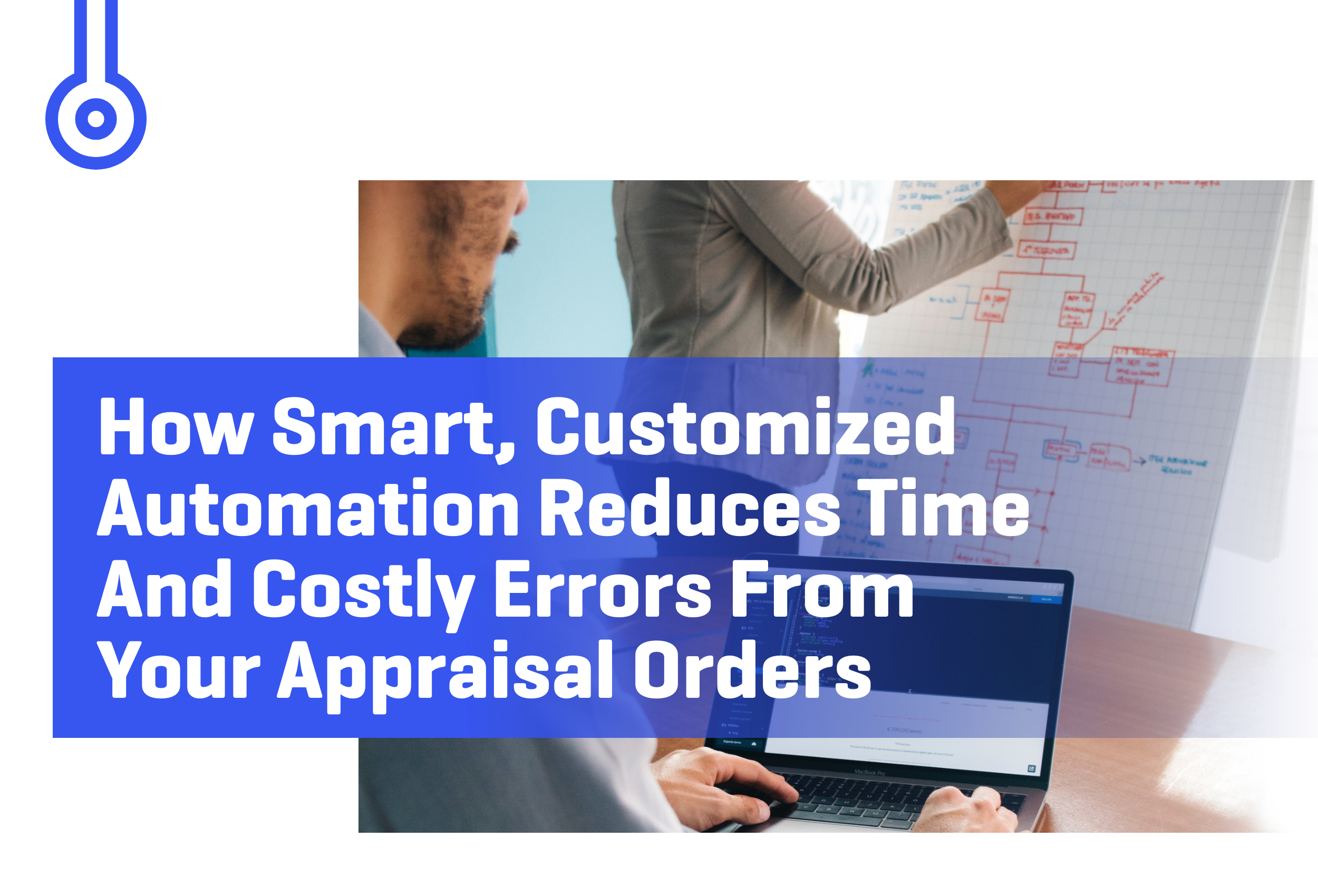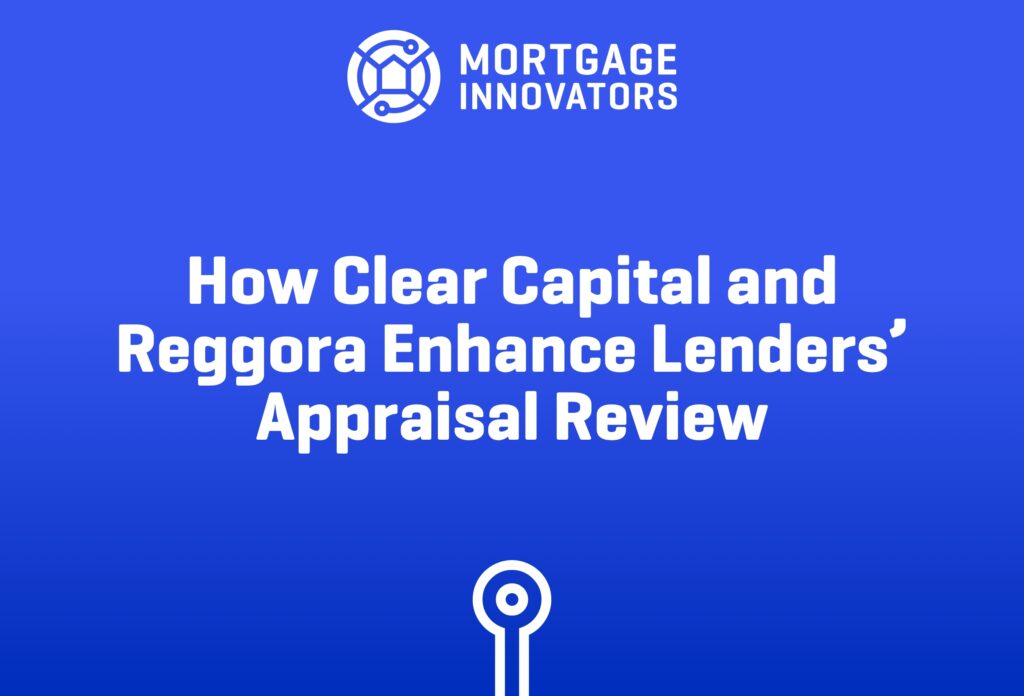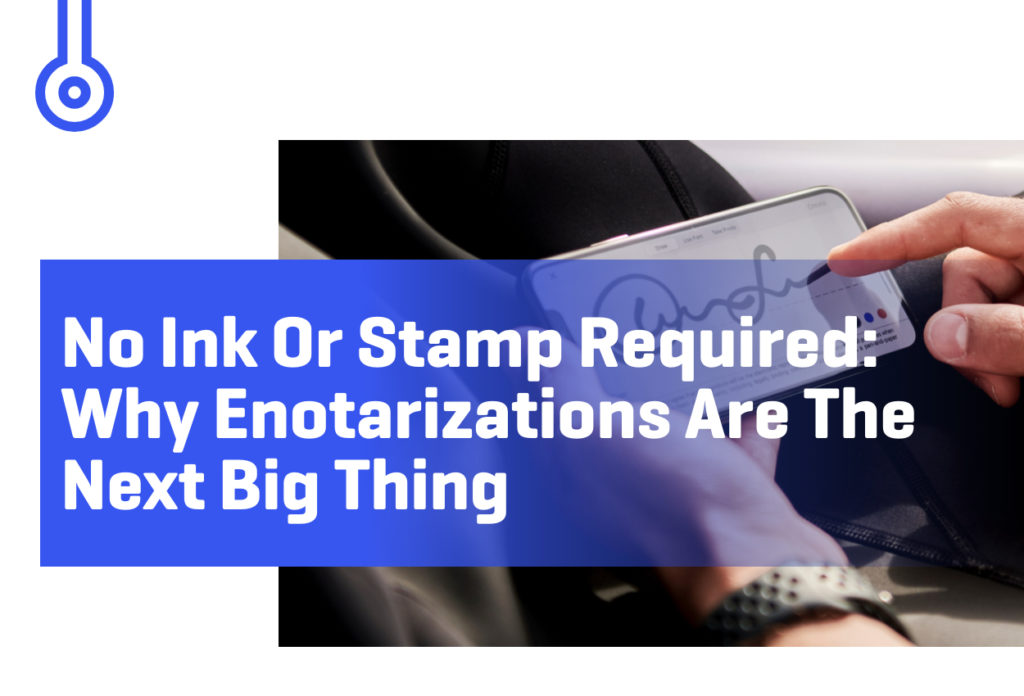This article was originally published on Reggora’s Website

Dan English
Reggora
Imagine automation within your appraisal ordering process as if you were presented with a buffet of customizable options.
You could pick and choose the exact type of requirements and processes to support your specific lender workflow while removing slow manual tasks, limiting human error, and if you’d like, creating standardized procedures. When you take a building block approach to automating your appraisal ordering process you’re streamlining for a better appraisal management experience while ordering the right appraisal product for the right appraisal fee at the right time, every time.
Why Automation Should be Part of Your Appraisal Process
In a poll from a recent Reggora webinar, we saw that 66 percent of the audience was managing their own appraiser panel, and 80 percent of the audience was not confident in their operational efficiency. If you’re one who’s been struggling to create a customized solution for your appraisal ordering process, adding automation may be a good next step. Automation can help you speed up your turn time through streamlining repeatable steps, reducing the number of clicks to complete a process, and cutting down mistakes.
Using a less error-prone method, you don’t have to worry as much about costly incorrect orders and can customize the process to your unique workflow to reduce time spent on each order. Because this speedier process uses automation, lenders also have the option of standardizing processes for uniformity across multi-state locations, and can create better lender and borrower experiences.
Specific Types of Appraisal Automation Available
With Reggora’s business intelligence rules, lenders can establish guidelines that automatically trigger or prevent appraisals from being ordered. This helps minimize mistakes, remove manual processes, and allow lenders to customize for high-level rules or granular ones.
For high-level rules, such as whether or not the order has an FHA case number or has been granted intent to proceed, Reggora can pause any appraisal that lacks this type of information from being ordered to cut down on errors. And Reggora’s order requirements allow lenders to ensure appraisals are only ordered when specific requirements are met.
When it comes to granular rules, lenders using Reggora’s platform have functionality directly from the loan file data to create complex automation sequences. For example, Reggora’s building blocks, order requirements and product assignment rules, automatically evaluate a loan file to ensure it has the right characteristics and data points required for an order to be created. These advanced rules help lenders quicken their processes, remove mistakes, and follow one of Reggora’s main principles: lenders have the ability to order the right appraisal product at the right appraisal fee at the right time, every time.
Where Automation Works Within Appraisal Orders
As I mentioned a little earlier, our poll from a recent webinar showed that 80 percent of the audience believed their current appraisal ordering process was not efficient, or that they were unsure about how efficient it was. But when you have Reggora’s automation, it’s easy to see efficiencies in the order process, from standard to custom fields, because every single step can be automated.
If there’s a data field or document within the loan file, no matter the LOS (Loan Origination System) you use, Reggora can map your data into the platform and use it as a rule to automate a process or build an appraisal order. For example, if you have custom fields from Encompass, Reggora can map then use those fields to set up entryways for rules that will support the automation process.
Reggora also allows lenders to send payment links directly to borrowers, and through its Stripe integration, enables seamless payment interactions. Lender-labeled payment links are sent to borrowers by Reggora upon order creation, then Reggora collects the funds and pays them to appraisal vendors upon acceptance or submission.
Building Blocks of Automating Your Appraisal Ordering Process
In order to understand how automation works within Reggora’s platform, there are two major building blocks to know: order requirements and product assignment rules.
Think of order requirements as the baseline of automation where lenders can ensure appraisals are only ordered when certain requirements are met, and orders are paused from being ordered at the wrong time. This higher-level automation essentially pauses order workflows based on certain information, or a lack of specific data, from the loan file to avoid expensive appraisal ordering mistakes.
For example, you can build order requirements based on custom fields, like intent to proceed, FHA case number, or a TBD (To Be Determined) address, mapped from your LOS or the loan file. Then, appraisal orders are automatically flagged for lender review if these certain fields have incorrect or missing data instead of moving straight into finding appraiser status. Through custom filters and workflows, Reggora’s order requirement rule sets support different lenders with various needs.
When considering the product assignment rules engine within Reggora, this tool evaluates loan file characteristics, and automatically suggests or selects appropriate appraisal products. With flexibility and customization, product assignment rules can become as granular as a lender needs while helping remove as many opportunities for human error as possible.
Mapping key fields and products into Reggora from the LOS is core to effective appraisal automation. After your critical fields are mapped during implementation, this not only drives your automation processes, but helps you make the right decisions when ordering appraisals and avoid big missteps like accidentally ordering a conventional appraisal for an FHA loan. By suggesting appraisal products that may be the right fit, Reggora helps lenders make the ordering process simpler, ensure appraisal quality, reduce turnaround time, and handle changing capacity well.
If you have modern appraisal technology like Reggora that includes automation, you’re able to order the right appraisal product for the right appraisal fee at the right time for every appraisal order. With the proper automated processes, you’ll see click and mistake counts go down, customization and standardization become possible, and both borrower and lender have superior appraisal ordering experiences.
To learn more about Reggora or see a demo of how Reggora can help solve your unique needs, reach out to our team here!
To learn more about this topic, check out the recorded webinar in its entirety by clicking here!









